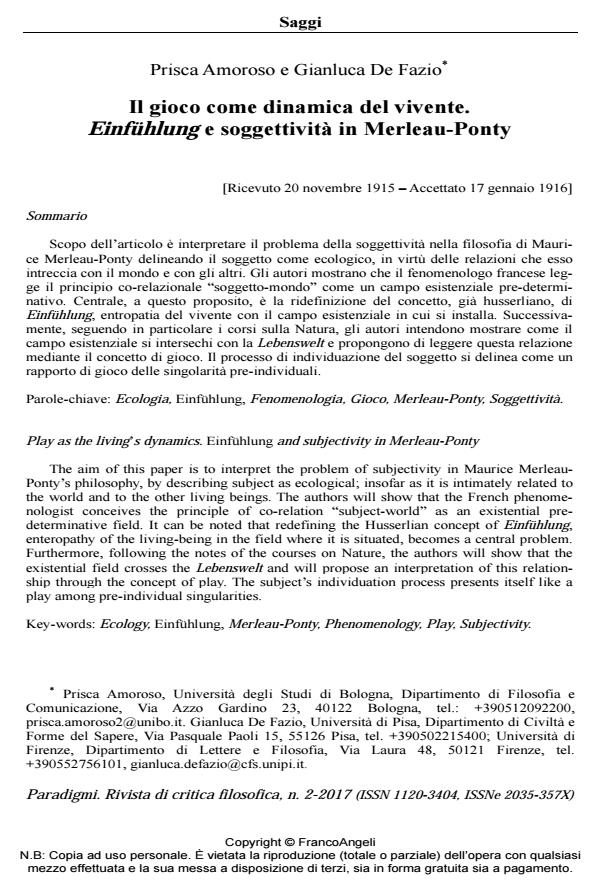Play as the living’s dynamics. Einfühlung and subjectivity in Merleau-Ponty
Journal title PARADIGMI
Author/s Prisca Amoroso, Gianluca De Fazio
Publishing Year 2017 Issue 2017/2
Language Italian Pages 14 P. 141-154 File size 176 KB
DOI 10.3280/PARA2017-002010
DOI is like a bar code for intellectual property: to have more infomation
click here
Below, you can see the article first page
If you want to buy this article in PDF format, you can do it, following the instructions to buy download credits

FrancoAngeli is member of Publishers International Linking Association, Inc (PILA), a not-for-profit association which run the CrossRef service enabling links to and from online scholarly content.
The aim of this paper is to interpret the problem of subjectivity in Maurice Merleau-Ponty’s philosophy, by describing subject as ecological; insofar as it is intimately related to the world and to the other living beings. The authors will show that the French phenomenologist conceives the principle of co-relation "subject-world" as an existential pre-determinative field. It can be noted that redefining the Husserlian concept of Einfühlung, enteropathy of the living-being in the field where it is situated, becomes a central problem. Furthermore, following the notes of the courses on Nature, the authors will show that the existential field crosses the Lebenswelt and will propose an interpretation of this relationship through the concept of play. The subject’s individuation process presents itself like a play among pre-individual singularities.
Keywords: Ecology, Einfühlung, Merleau-Ponty, Phenomenology, Play, Subjectivity.
Prisca Amoroso, Gianluca De Fazio, Il gioco come dinamica del vivente. Einfühlung e soggettività in Merleau-Ponty in "PARADIGMI" 2/2017, pp 141-154, DOI: 10.3280/PARA2017-002010